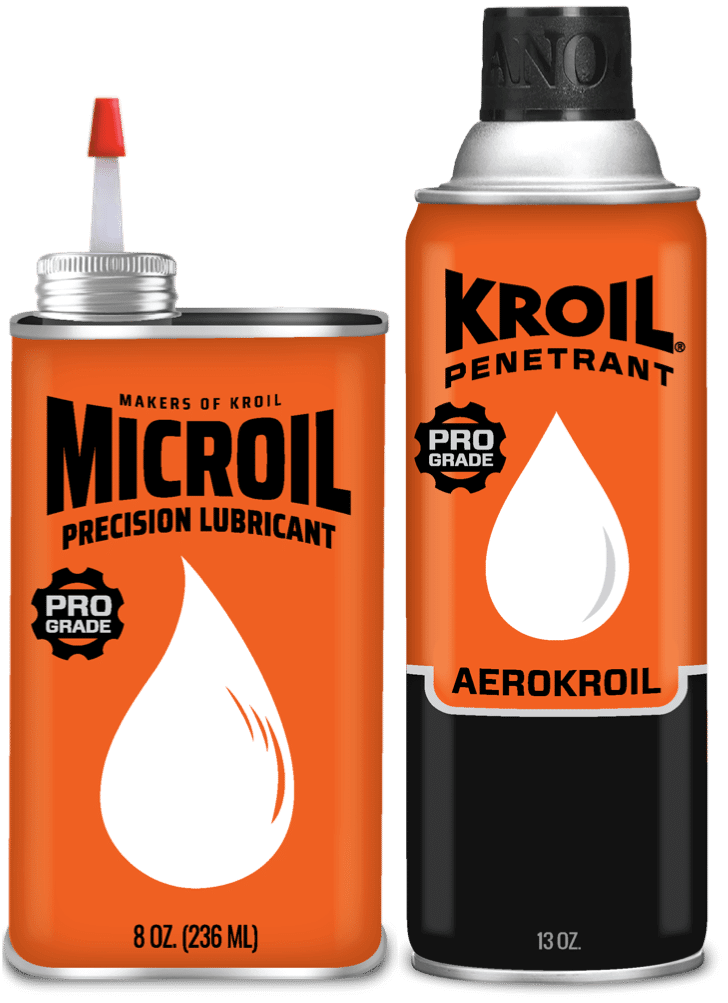Rusted bolts, stuck fasteners, and corroded components are some of the most frustrating challenges in industrial maintenance and repair. When rust and corrosion take hold, disassembling machinery can feel nearly impossible, wasting valuable time and increasing labor costs. Fortunately, industrial penetrating oils today offer an effective solution for loosening rusted parts, often referred to as the “best rusty bolt penetrants” by professionals.
However, using the right tools alongside industrial penetrating oil can dramatically speed up the loosening process. This blog explores the key tools and techniques you can combine with penetrating oils to achieve optimal results and minimize downtime.
The Science Behind Industrial Penetrating Oil
Before discussing the tools, it’s essential to understand how industrial penetrating oil works. Penetrating oils are specially formulated lubricants designed to seep into the microscopic gaps and threads of rusted or corroded parts. Their low viscosity enables them to displace rust, grime, and moisture, making it easier to free stuck components.
While penetrating oil on its own can do wonders, pairing it with the proper equipment ensures efficiency and boosts its effectiveness, especially when dealing with stubborn fasteners or industrial-scale machinery.
Key Tools to Use with Industrial Penetrating Oil
Each rusted component presents different challenges. Here are the best tools to pair with industrial penetrating oil for faster loosening of rusted parts.
- Adjustable Wrenches and Socket Sets
When working on rusted nuts and bolts, adjustable wrenches and socket sets are the primary tools of choice. Once you’ve applied a generous amount of industrial penetrating oil to the rusted area, allow time for the oil to penetrate the threads. Use a high-quality wrench or socket to gradually work the component back and forth.
A few pro tips:
- Choose tools with anti-slip grips for better control.
- Use six-point sockets to prevent rounding off bolt heads.
- If you’re dealing with particularly tight bolts, consider tools with extended handles for increased torque.
By combining these tools with the “best rusty bolt penetrant,” you’ll often find success even with the most stubborn bolts.
- Heat Guns or Blowtorches
Heat is an excellent ally when dealing with rusted parts. Applying moderate heat to the affected area expands the metal and helps break the bond caused by rust and corrosion. After spraying an industrial penetrating oil, carefully apply heat using a heat gun or a blowtorch. Be sure to follow safety precautions, as excessive heat can damage surrounding components or compromise certain materials.
This method is particularly effective for larger, heavily rusted machinery or fasteners in industrial settings.
- Impact Wrenches
Impact wrenches, whether pneumatic or electric, deliver high-torque output designed for loosening tough bolts quickly. After letting the industrial penetrating oil soak for several minutes, the continuous rotational force from an impact wrench can easily break apart rusted connections.
Make sure to apply steady pressure and choose the correct socket attachment to minimize tool slippage and prevent damage to the bolt head.
- Breaker Bars
For bolts that refuse to budge with standard tools, breaker bars come to the rescue. These long, non-ratcheting bars offer superior leverage to apply more torque than conventional wrenches. When paired with an industrial penetrating oil, a breaker bar can usually loosen even the most tightly rusted bolts without the risk of shearing the fastener.
Tip: Always ensure that the socket attached to the breaker bar is securely fitted to avoid slipping or rounding off the bolt.
- Wire Brushes and Abrasive Pads
Before applying industrial penetrating oil, it’s often beneficial to remove heavy rust buildup to improve the oil’s effectiveness. Wire brushes and abrasive pads are excellent for cleaning visible corrosion from bolts, nuts, and threaded components.
Once the initial rust layer is brushed away, the penetrating oil can penetrate deeper into the affected area, optimizing its lubricating properties.
- Torque Multipliers
For industrial environments where heavy-duty machinery includes extensively corroded or oversized fasteners, torque multipliers are invaluable. These tools amplify the input force applied, making it easier to loosen bolts that would otherwise require extreme effort.
When combined with an industrial-grade penetrant, a torque multiplier ensures faster resolution in industrial maintenance projects while reducing the strain on operators.
- Hammers or Mallets
Adding controlled vibrations to rusted parts can help dislodge rust particles within threads. After applying industrial penetrating oil, gently tap the fastener or the surrounding area with a hammer or mallet. Choose rubber mallets where additional care is necessary to avoid surface damage.
This technique is particularly effective in instances where there’s minor movement, but not enough to easily unscrew the fastener.
Best Practices for Using Industrial Penetrating Oils and Tools
To maximize success, it’s essential to follow these best practices when combining industrial penetrating oil with the tools mentioned above:
- Patience Pays Off
Allow ample time for the oil to penetrate the rust thoroughly. Waiting 10-15 minutes or longer ensures better results, especially for heavily corroded components.
- Reapply When Necessary
For highly rusted areas, reapplying penetrating oil multiple times may be required. Don’t rush the process.
- Use Proper Safety Gear
When working with tools, industrial penetrants, or heat, always wear gloves, safety goggles, and other relevant protective equipment to avoid injury.
- Good Maintenance Practices
Preventing rust is easier than dealing with it. Regularly clean and lubricate components to reduce the likelihood of rust forming in the first place.
Why Industrial Penetrating Oil is a Must-Have
The tools discussed above are only as effective as the penetrating oil used with them. When choosing an oil, look for high-quality options labeled as the “best rusty bolt penetrant.” These oils should feature penetrating agents designed for industrial-grade challenges, providing fast action and lasting performance.
Combining a reliable industrial penetrating oil with the right tools unlocks efficiency, reduces material wastage, and ensures that rusted parts don’t derail important operations.
Unlock Efficiency with the Right Tools and Penetrating Oil
Whether you’re maintaining industrial equipment or handling an at-home repair project, rust and corrosion no longer need to delay your work. By pairing the right tools with industrial-grade penetrating oil, you can quickly and effectively loosen rusted bolts and components.
Take the hassle out of difficult repairs by investing in high-quality penetrating oil and essential tools today. Always remember, the combination of the right products and techniques will save time, effort, and resources in the long run.




